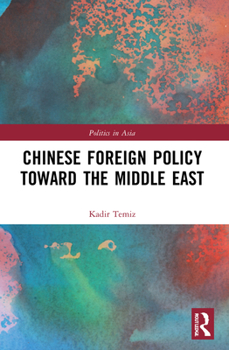Chinese Foreign Policy Toward the Middle East
Select Format
Select Condition 
Book Overview
This book examines how the rise of China has influenced its cross-regional foreign policy toward non-Arab countries in the Middle East between 2001 and 2011. Analyzing contemporary international crises in the Middle East such as the Iran nuclear crisis, the Palestinian-Israeli conflict, and the Cyprus question, the volume draws on daily newspapers published in Chinese, Turkish, and English and official documents as primary sources.
The examined period is critical to understand China's aggressive and more attractive foreign policy dynamism in the following years. All the bilateral relations China has developed in the Middle East during these years was a preparation for the next big step toward China's rising influence in the region and the world. Utilizing the framework of debates on the rise of China in international relations literature, the volume focuses on political, economic, and military aspects of the power transition. Claiming that China's foreign policy toward the Middle East can be defined as "active pragmatism," the "non-Arab" conceptualization provides a new understanding of China's traditional Middle Eastern foreign policies.
The study assesses fieldwork carried out in Beijing and Shanghai, and Chinese sources that are critical in understanding both official and academic perspectives. The book is a key resource for students, academics and analysts interested in China and the Middle East relations, foreign policy, and politics, as well as for contemporary political historians.





